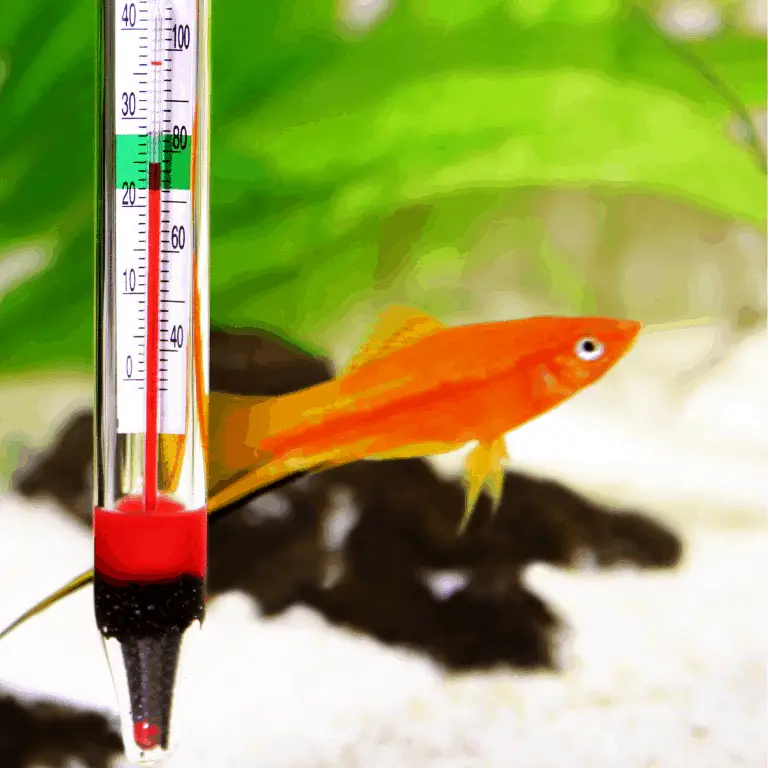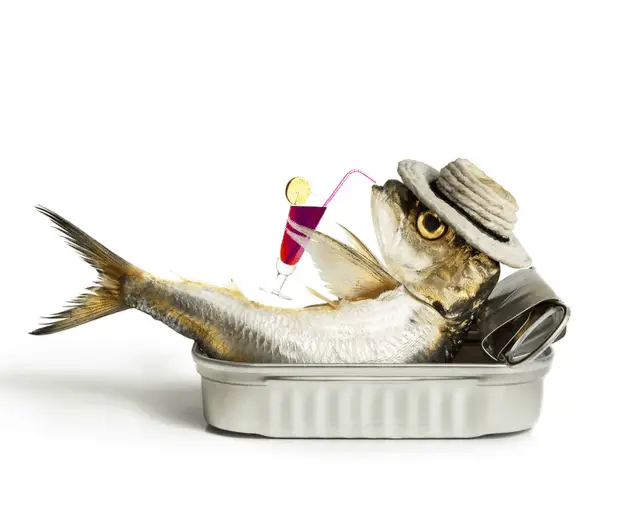Tropical fish are some of the most beautiful pets nature has given us. With colours that span the rainbow, scales that shimmer and fins that flutter, they can be fascinating to watch and a treat to care for. They can also come with their fair share of challenges, like how to provide the proper climate for tropical fish—can they survive without a heater?
Tropical fish can survive without a heater, but they will not thrive. Not having an adequate environment increases their risk of death from diseases. Also, their life expectancy will lower considerably, and their color will dull. It’s highly recommended to provide tropical fish with a heater.
In this article, I will take you through the reasons you should have a heater for your tropical fish. To leave them without one is the same as leaving humans in a home with no electricity or plumbing.

Can You Put Tropical Fish in a Tank Without a Heater?
You can put tropical fish in a tank without a heater, but they won’t survive nearly as long as if they had one. In the wild, they do not experience large temperature swings and they have the ability to migrate to a warmer area. Therefore, it’s best to use a heater for tropical tanks.
Temperature Changes
In nature, you have rivers, streams, and oceans with warmer temps toward the surface and cooler ones near the bottom.
Aquariums, though, tend to be uniform temperature throughout—and the water takes on the same temp as the room it’s in reasonably quickly. This means that even if your living room is a nice balmy 80 °F (26.66 °C) in the day, the room (and water) can cool down overnight.
This kind of temperature change can stress fish, and stressed fish end up with all sorts of problems. While it is possible to care for tropical fish without a heater if your house stays between 75 °F and 80 °F (23.88 °C and 26.66 °C), it just isn’t advised.
Will your tropical fish survive in a tank without a heater? Maybe. Should you risk it? Maybe not.
Do All Tropical Fish Need Heaters?
All tropical fish need heaters because they’re cold-blooded and can’t regulate body temperature like humans can. Most tropical fish do best in water between 75 °F and 80 °F (23.88 °C and 26.66 °C), and installing a heater ensures the temperature stays somewhere in the middle of that healthy range.
Though there are some subtropical fish from areas like Central America and Florida which only need temperatures between 64 °F and 72 °F (17.77 °C and 22.22 °C).
Hardier subtropical fish include the disease-resistant zebra danio, the lively rosy barb, and the excitable southern platyfish. These fish are a perfect option for beginners or owners who want the colors and beauty of tropical fish with a little less stress and hassle.
How Long Can Tropical Fish Go Without a Heater?
But what about when you need to take your fish out of their tank? What then? Are you supposed to never clean the tank? Never wash the sand?
Let your fish get parasites and bacteria and die anyway? Of course not! Fish can be placed in a large bucket of warm water for several hours without being affected.
Tropical fish can go as long as 1 to 2 days without a heater. However, the temperature of the water and type of fish you have play a big part in this equation. Some fish won’t survive more than 6 hours without a heater.
Look for signs of over-cooling: the fish’s metabolism will slow, causing lethargic movements, lack of appetite, and even sleepiness. This is a good sign that it’s time to either add warm (conditioned) water or get those poor fishies back in their warm home.
What Do You Do When Your Fish Tank Heater Stops Working?
When a fish tank heater stops working, it’s essential to monitor the water temperature. Water holds on to heat, but not forever. Keep the water from getting cold by wrapping the tank in bubble wrap and tightly closing the lid. You can also move the tank closer to a heater or a sunny window if it is small enough to be able to move safely.
Unfortunately, heaters can (and do) break, even when you’re doing your best to take care of your tank. While you’re repairing the heater or shopping for a new one, be sure to use a thermometer to check the temperature of the water and adjust accordingly.
How Can I Keep My Fish Tank Warm Without Electricity?
Your power has gone off! What now? Hopefully, you have stocked up on a few essentials and are ready to ride out the Armageddon you’re facing.
You can keep your fish tank warm without electricity by insulating your tank with bubble wrap and/or adding some sealed hot water bottles. You can also choose to downsize your tank, as this will help keep the warmth in the water.
One fish tank essential to never do without is a thermometer! Keeping track of the temperature of the water in the tank can clue you in on how well your efforts are working.

Insulate Your Fish Tank.
As mentioned above, you can wrap the tank in insulating materials like bubble wrap; Other options that work well are towels, blankets, and even Styrofoam or cardboard.
I like bubble wrap best for its transparency because it’s essential to watch the behavior of your tropical fish for changes in appetite, activity, and alertness.
If insulating doesn’t keep the temperature quite where you want it, consider adding some (sealed) hot water bottles to the tank.
While these can be pretty effective in raising the temperature, add only one at a time to avoid wild temperature swings. And never add boiling water to the tank. Always watch that temperature closely!
Selecting Heaters And Thermometers For Your Tank.
Maybe you’re worried about the cost of a heater for your fish tank, but it doesn’t cost as much as you might think. Amazon has many varieties of heaters for your fish tank ranging from £15 to £30, such as the U-Picks Submersible Aquarium Heater, that’s explosion proof and will get you accurate readings every time. This is the heater that I use in my tank.
Always be sure to save and refer to the company manual to figure out how many watts you need for your specific tank. You could accidentally overheat your fish which would cause them a slow and agonising death.
Remember as well that not every manufacturer is the same. So while you have your old thermometer’s manual, it should not be used as a guide for your new one as this could be inaccurate for another manufacturer’s product.
Don’t forget to get a second thermometer as well, designed for the aquarium, to ensure you have the perfect temperature for your beautiful fishes! You can get an aquarium thermometer, like the Zacro Pack of 2 LCD Digital Aquarium Thermometer, from Amazon.com as well, which contains an easy-to-read digital screen so you can take the guess work out of your readings.
Why Do I Need Two Thermometers for My Fish Tank?
It’s best to have two thermometers for your fish tank to ensure you’re getting an accurate reading. For instance, if one thermometer says 75 °F (23.88 °C), and the other reads 76 °F (24.44 °C), you can assume the water is 75.5 °F (24.16 °C).
I believe it’s best to have one digital and one mercury thermometer designed specifically for water. This is sure to keep your digital thermometer in check so that you can provide the optimal environment for your little aquatic friends.
After all, just like how you don’t want the water too cold, you don’t want it too hot. Assuring the water is between 75 °F and 80 °F (23.88 °C and 26.66 °C) is best done by using two thermometers to check the accuracy of the other.
RELATED POST: Do Fish Tanks Increase Humidity?
Conclusion.
We love our pets. Be they furry, scaly, or slimy; we want them to be happy and healthy in our care. Our tropical fish thrive best in environments with healthy pH levels, good oxygen content, appropriate lighting, and the right temperature. Given the correct tools—including the right heater—our tropical fish can survive and flourish for a long time.



